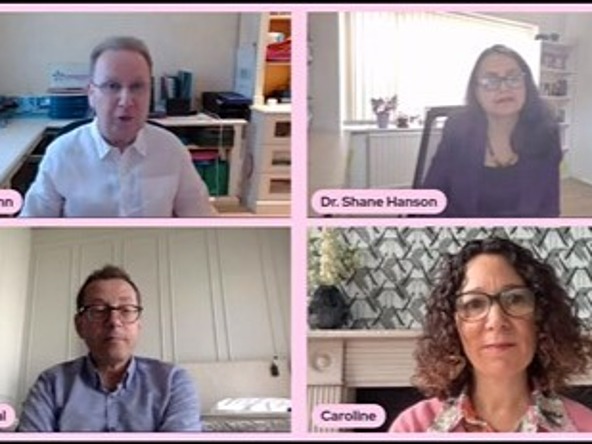Research must help marketers embrace behavioural science

The comments were taken from a panel session featuring Tas Tasgal, trainer, brand and communications strategist and author, Shane Hanson, head of insight and innovation, personal care, at Panasonic Europe, and Caroline Whitehill, co-founder at Acacia Avenue. David Penn, chief executive and founder at Conquest, chaired the session.
Whitehill said that behavioural economics could help “rationalise some of the etherealness of creativity” and needed to be used to their full advantage, at the expense of more traditional versions of market research.
“There is a lot of conventional research that should be left behind – it is not fit for purpose, based on what we know,” she said.
“Let’s kill off the focus groups as the first early intervention – that is not going to get us the best outcomes for what we want. There needs to be a bit of a radical overhaul.”
She said that many research briefs only acknowledged behavioural techniques or System One thinking – the impulsive, automatic and unthinking part of human reaction.
“It is lip service, and there is a lot that can be done, which is within our grasp, that could re-orientate things,” Whitehill said.
She added that promoting System One was “not about persuasion or education, it is engagement and show not tell”. Whitehill said, however, that these skills were not in researchers’ DNA in the same way they are for salespeople.
Tasgal said that behavioural economics had revolutionised market research, and had provided a more comprehensive and uniform way of looking at how consumers interact with products.
“There was a very traditional way of looking at how human beings, or consumers as they were sometimes called, behaved,” he said. “It is incredibly powerful and liberating to hear about System One and found it was validating what a lot of us in the planning, communications, research and creatives had always thought was the case.”
However, Tasgal said that the way behavioural economics and System One was explained to non-researchers needed to be enhanced.
“We need to frame it in such a way that customers, users and buyers of research, and buyers of insight, can understand the value of behavioural economics,” he said.
“Do you want to understand how human beings respond to your brand? Do you understand that delivering a barrage of facts will not change people’s behaviour? Do you understand the power of framing?”
Hanson said that there was a problem in communicating the benefits of behavioural science to non-researchers.
“System One is far away from where it should be in the daily lingo of my marketing counterparts, and forget management,” she said. “We are not there yet.
“There’s a lack of understanding of the value that this type of methodology gives the business. If they understood the value, they would be there. But they are a million miles away from embracing neuro methods.”
Hanson said the industry needed to help people understand what market research brings to marketing and “educate marketers to understand the immense potential of going beyond the traditional ways of market research”.
She added that this included identifying the right people in the higher levels of management to engage with and “build that equity of what market research can bring to marketing in the long run”.

We hope you enjoyed this article.
Research Live is published by MRS.
The Market Research Society (MRS) exists to promote and protect the research sector, showcasing how research delivers impact for businesses and government.
Members of MRS enjoy many benefits including tailoured policy guidance, discounts on training and conferences, and access to member-only content.
For example, there's an archive of winning case studies from over a decade of MRS Awards.
Find out more about the benefits of joining MRS here.














2 Comments
Andrew Watts Founding Partner KHWS
4 years ago
This is exactly what KHWS have been doing for the last 5 years - our proprietary research methodology developed in partnership with Durham University Business school- identifies the brand specific System One unconscious cues that consumers look for the inform their purchase behaviour.
Like Reply Report
Philip Graves
4 years ago | 1 like
I wholeheartedly applaud the MRS for finally starting to acknowledge the inevitable. Not only has my company (and its clients) been mindful of this for the last seventeen years, I wrote a book on the subject in 2010 (Consumer.ology). I was interviewed at the time of publication (https://www.research-live.com/article/features/meet-the-man-who-wants-to-make-surveys-history/id/4003536) and the general defence was that researchers were aware of the limitations of their tools: if that were true I think I'd respect the people who use such techniques even less, but I'm fairly sure it wasn't then, now I'm not so certain.
Like Reply Report